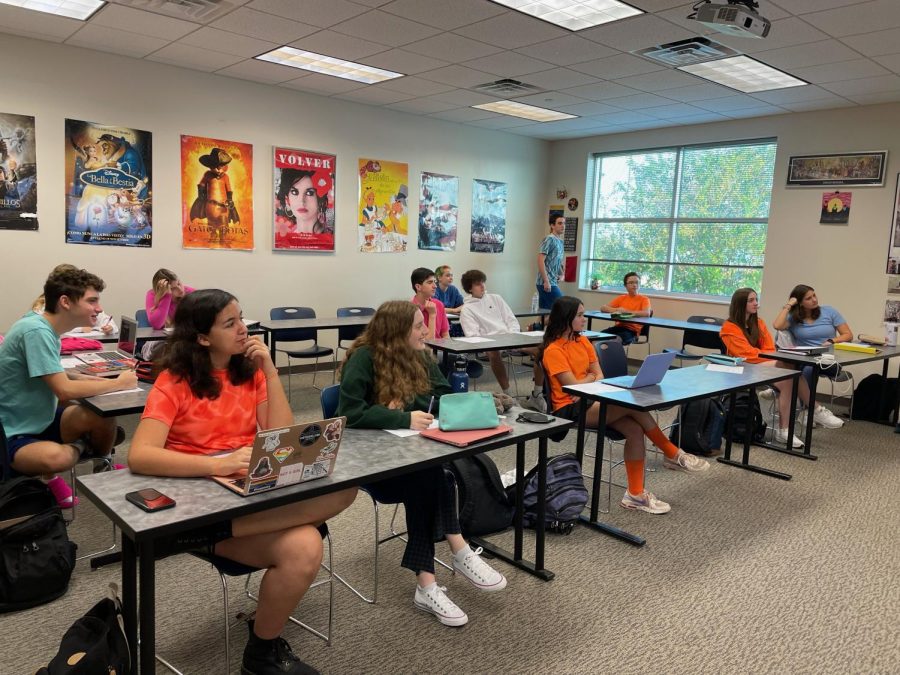From AP to Advanced: The Emery Community’s Stance
AP Spanish office hours class gaining extra preparation for the exam.
November 8, 2022
The Emery/Weiner School makes a critical switch from traditional Advanced Placement (AP) classes to advanced classes leaving many students, teachers, and faculty with different views on the matter. So much so that when addressed, the Head of Upper School, Dr. Joe Weinstein-Sears, affirmed that “one of the hallmarks that makes this community beautiful is that we won’t necessarily all agree.”
The idea was officially born last year, after nearly three years of discussion from the student leadership team as well as Dr. Weinstein-Sears himself, who had taught an AP US History course in the past. Together, they ultimately expressed their concerns regarding the strictness and rigid framework of the AP curriculum. To gain the AP label, teachers were forced to teach in terms of College Board layout and standards.
Head of Upper School, Dr. Joe Weinstein Sears, explained the decision process and claimed, “College Board may be limiting,” and “Teachers want to go beyond AP, and have a more engaging curriculum.” By shying away from the customary College Board education, students will have more room to learn about the information that excites them.
Another leading member in this decision, Jessica Cortes, the Registrar, and Testing Coordinator at EWS, voices that “the current path is more favorable and prepares [students] for what to expect in college.” It transcends a surface-level learning experience and prepares students for real-life applications.
Upper School Advanced US History teacher, Cara Bendayan, was not initially in favor of this change. “As a private institution, I believe my job is to serve the client, which is why I wanted it to be AP,” said Bendayan. When the course officially switched to advanced after her first year of teaching, she rolled with the punches, which allowed her to evolve her lesson plans into a new style of learning. This year, she “took the liberty of making the curriculum more [her] own than what the College Board allows, and [she] loves it as it allows [her] to become more creative with her instruction.” Bendayan claimed this is likely something she would not attempt without the school’s decision to switch to advanced classes.
Under the same influence, an unnamed student that is directly affected by the decision stated, “If the school wanted the students to succeed, then they would have actual AP classes.” Which was said after expressing their concerns about failing to flourish on the harsh exam without the help of the official college board class. But, in turn, they understand that “it has only been a few weeks of school,” and there are still ways to prove them wrong about the matter.
Although this leaves some individuals worried about their academic success, most everyone understands that beyond the test, there is an importance in progressing Emery’s curriculum, which is achieved by not being stuck strictly to the College Board.
